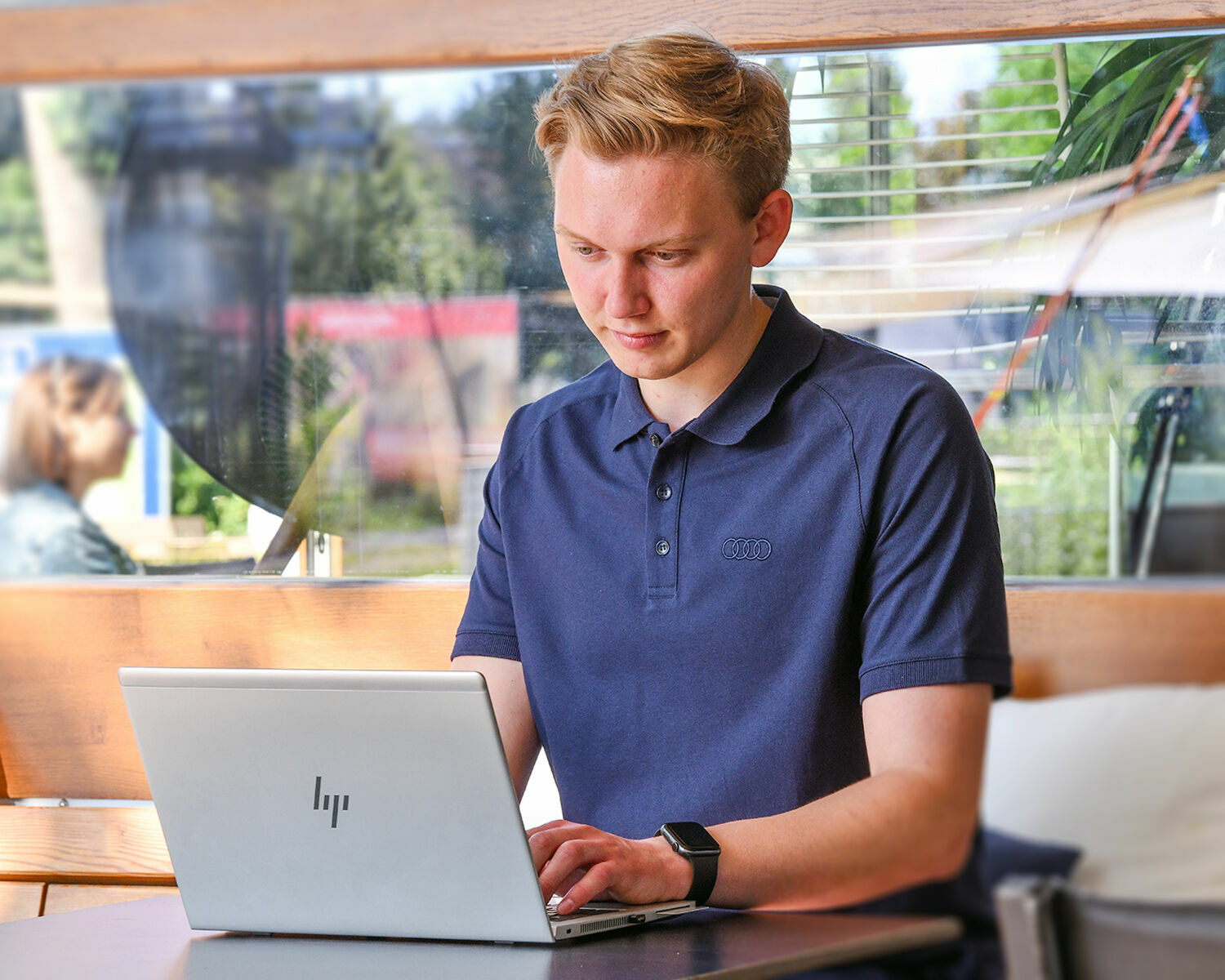“Better Normal”: working and learning at Audi goes remote
- Audi paving the way forward to the hybrid enterprise and embracing flexible working arrangements
- Trainees to have ability to spend up to 20 percent of training program learning remotely
- Audi Member of the Board of Management for Human Resources and Organization Sabine Maaßen: “We’re approaching digital transformation holistically, from training to retirement.”
- Chairman of the General Works Council Peter Mosch: “The modern concept boosts the self-confidence of Audi employees.“
Audi is making major strides in the digital transformation of its collaboration processes. The company continues to expand its combination of remote, semi-remote, and office-based work. Audi is also incorporating remote learning into its vocational training programs. In close collaboration with the local Chamber of Industry and Commerce, Audi has developed a plan for a flexible learning and collaboration culture. On the basis of this concept, the Board of Management and the works council have agreed to permanently incorporate remote learning in the vocational training program. In the future, vocational trainees at Audi will be able to learn digitally for up to 20 percent of their training program.
Remote working – finding the right model
Remote work has been part of Audi’s corporate culture for many years. The company successfully switched to remote work during the pandemic, demonstrating that digital collaboration models work across all of Audi’s divisions. The company will continue to expand and enhance these models in the future.
For example, Audi recently launched a project entitled “Better Normal” in collaboration with the works council to further increase the flexibility of the working environment as the automaker moves down the path toward the hybrid enterprise. In this context, Audi is focusing on creating structures that are as flexible as possible. Ideally, employees should be able to work in the way and within the framework most conducive to their activities.
“There’s no going back to the way things were before”, summed up Sabine Maassen, Member of the Board of Management for Human Resources and Organization at AUDI AG.
Remote learning – “a logical step”
In addition to remote working arrangements for employees, a new labor-management agreement coming into force on September 1, 2021, will also govern remote learning for vocational trainees.
“We’re approaching digital transformation holistically, from training to retirement. That’s why it’s a logical step to also make training content and learning methods available remotely and in digital form. Our labor-management agreement governing “Remote Learning for Vocational Trainees” forms an important basis for this”, explained Maaßen.
“The labor-management agreement on remote learning is an important investment in the future of Audi and its young employees. The experience that the trainees can gain from this cutting-edge approach for their later careers, such as in the field of digital communications, will boost their self-confidence and self-reliance”, said Peter Mosch, Chairman of the General Works Council.
In addition, if the training content is suitable, it will also be taught digitally in the future within the framework of new didactic learning methods. This means vocational trainees will be able to learn in a flexible manner right from the start – not only on the factory premises, but also at locations of their own choosing across Germany.
Remote learning with a laptop or tablet gives them greater freedom and enhances the trainees’ ability to manage themselves. It includes participating in guided digital training units or working on self-directed learning units via the company’s own learning platform moodle.
In this context, training will, in general, continue to take place on site at the training center or at the relevant learning stations throughout the factory. Remote learning will be assigned for entire, specific days at the discretion of the respective trainers at the training center. Depending on the vocational training program, trainees will be able to spend up to 20 percent of their on-site training time learning remotely.

